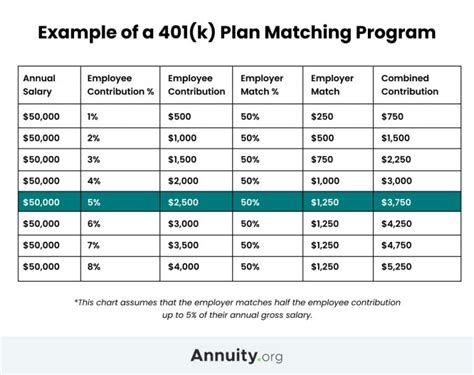
Claiming Social Security at 62 might seem appealing, but one retiree regrets starting benefits early and shares why waiting could significantly boost your retirement income.
Many Americans face a crucial decision when nearing retirement: when to begin receiving Social Security benefits. While the allure of early access at age 62 is tempting, financial experts often advise delaying the start date to maximize potential payouts. One retiree, identified only as M, discovered firsthand the drawbacks of claiming Social Security at the earliest opportunity, highlighting the long-term financial implications of this choice.
M’s primary motivation for claiming Social Security at 62 was to supplement a pension that wasn’t sufficient to cover living expenses. However, this decision resulted in a significantly reduced monthly benefit compared to what would have been received by waiting until full retirement age (FRA) or even later, at age 70. The Social Security Administration (SSA) reduces benefits for each month claimed before FRA, which currently stands at 67 for those born in 1960 or later. Conversely, benefits increase for each month delayed past FRA, up to age 70.
According to the Social Security Administration, claiming benefits at age 62 can result in a reduction of as much as 30% compared to the full retirement age amount. Waiting until age 70 can boost benefits by as much as 24% beyond the full retirement age amount. This means that an individual entitled to $2,000 per month at full retirement age could receive only $1,400 if claiming at 62, or $2,480 if waiting until 70.
M’s situation underscores a critical lesson for those planning their retirement: carefully weigh the immediate financial needs against the long-term benefits of delaying Social Security. While early access may provide a short-term solution, it can lead to significantly lower income throughout retirement.
The Drawbacks of Early Claiming
Claiming Social Security benefits before full retirement age comes with several disadvantages. The most significant is the permanent reduction in monthly benefits. As mentioned earlier, this reduction can be substantial, impacting the overall financial security of retirees, especially those who rely heavily on Social Security as a primary source of income.
Another potential drawback is the earnings limit for those who continue to work while receiving Social Security benefits. In 2024, if you’re under full retirement age, the SSA deducts $1 from your benefit payments for every $2 you earn above $22,320. This limit can further reduce the amount of Social Security income available to retirees who are still actively employed.
The Advantages of Delaying Benefits
Delaying Social Security benefits, on the other hand, offers several advantages. The most notable is the increase in monthly benefits. For each year you delay claiming past your full retirement age, your benefits increase by 8% per year, up to age 70. This can result in a significant boost to your retirement income, providing greater financial security and flexibility.
Delaying benefits also provides a hedge against longevity risk. As people live longer, the need for retirement income increases. Delaying Social Security can help ensure that you have a higher income stream throughout your retirement years, protecting you from outliving your savings.
Furthermore, delaying Social Security can provide valuable protection for your surviving spouse. Social Security survivor benefits are based on the deceased worker’s earnings record. If you delay claiming Social Security and maximize your benefits, your surviving spouse will receive a higher survivor benefit upon your death.
Factors to Consider When Deciding When to Claim
The decision of when to claim Social Security benefits is highly personal and depends on individual circumstances. There is no one-size-fits-all answer. Several factors should be considered when making this decision:
- Financial Needs: Assess your current and projected financial needs. If you have significant savings and other sources of income, you may be able to afford to delay Social Security. However, if you are struggling to make ends meet, claiming early may be necessary.
- Health: Consider your health and life expectancy. If you have health issues or a shorter life expectancy, claiming early may make sense. However, if you are in good health and expect to live a long life, delaying benefits may be the better option.
- Work Plans: Evaluate your plans for working in retirement. If you plan to continue working, the earnings limit may reduce your Social Security benefits if you claim early.
- Spousal Benefits: Consider the impact on spousal benefits. If your spouse is eligible for Social Security benefits based on your record, delaying your benefits can also increase their benefits.
- Break-Even Analysis: Conduct a break-even analysis to determine how long you would need to live to recoup the benefits you would have received if you had claimed early. This can help you make an informed decision based on your life expectancy.
Strategies for Maximizing Social Security Benefits
While the decision of when to claim Social Security is crucial, there are also other strategies you can use to maximize your benefits:
- Work History: Your Social Security benefits are based on your 35 highest-earning years. If you have fewer than 35 years of earnings, consider working longer to increase your average earnings.
- Earnings Record: Review your Social Security earnings record regularly to ensure it is accurate. Any errors could reduce your benefits.
- Coordination with Spouse: If you are married, coordinate your Social Security claiming strategies with your spouse to maximize your combined benefits.
- File and Suspend: Although the “file and suspend” strategy is no longer available, there are still ways to coordinate benefits with your spouse.
- Consider a Roth Conversion: Converting traditional IRA assets to a Roth IRA can provide tax advantages in retirement and potentially increase your overall retirement income.
Professional Advice
Given the complexity of Social Security claiming strategies, it is often advisable to seek professional financial advice. A qualified financial advisor can help you assess your individual circumstances and develop a personalized claiming strategy that aligns with your financial goals. They can also help you navigate the various rules and regulations surrounding Social Security benefits.
The Case of M: A Cautionary Tale
M’s story serves as a cautionary tale for those considering claiming Social Security early. While the immediate financial relief may be tempting, the long-term consequences can be significant. By carefully considering your individual circumstances and weighing the pros and cons of claiming early versus delaying, you can make an informed decision that will help you secure a more comfortable retirement.
M acknowledges the mistake in claiming early, highlighting the importance of understanding the implications of Social Security decisions. “If I had known then what I know now, I would have found a way to bridge the gap until full retirement age,” M stated. This sentiment encapsulates the need for thorough planning and consideration before making a decision that can impact your financial well-being for decades to come.
Beyond Individual Choices: Social Security’s Future
The Social Security system itself faces long-term challenges. The Social Security Administration projects that the trust funds that support Social Security will be depleted in the coming years, potentially leading to benefit cuts if Congress does not take action. This uncertainty adds another layer of complexity to the decision of when to claim Social Security.
Policymakers are considering various options to address the long-term solvency of Social Security, including raising the retirement age, increasing the payroll tax, and reducing benefits. The outcome of these debates will have a significant impact on the future of Social Security and the retirement security of millions of Americans.
Conclusion
Deciding when to claim Social Security benefits is a complex decision with significant financial implications. While claiming early may provide immediate relief, it can result in a permanent reduction in monthly benefits. Delaying benefits, on the other hand, can significantly increase your retirement income and provide valuable protection against longevity risk. By carefully considering your individual circumstances, seeking professional advice, and staying informed about the future of Social Security, you can make an informed decision that will help you secure a more comfortable and financially secure retirement. The regret expressed by individuals like M underscores the importance of understanding all aspects of Social Security before making a potentially irreversible decision.
Frequently Asked Questions (FAQ)
1. What is the Full Retirement Age (FRA) for Social Security?
The full retirement age (FRA) depends on the year you were born. For those born between 1943 and 1954, the FRA is 66. For those born between 1955 and 1959, the FRA gradually increases by two months per year. For those born in 1960 or later, the FRA is 67. Claiming benefits before your FRA will result in a reduced monthly payment.
2. How much are Social Security benefits reduced if claimed at age 62?
The reduction in Social Security benefits for claiming at age 62 depends on your full retirement age. If your FRA is 67, claiming at 62 will result in a reduction of approximately 30% in your monthly benefit. This reduction is permanent and will affect your benefits for the rest of your life.
3. How much can Social Security benefits increase if delayed until age 70?
For each year you delay claiming Social Security benefits past your full retirement age, your benefits increase by 8% per year, up to age 70. This means that if you delay claiming from age 67 to age 70, your benefits will increase by 24%. This can significantly boost your retirement income.
4. What happens to Social Security benefits if I continue to work after claiming?
If you continue to work while receiving Social Security benefits before your full retirement age, the Social Security Administration (SSA) will deduct $1 from your benefit payments for every $2 you earn above a certain limit. In 2024, this limit is $22,320. In the year you reach your full retirement age, the deduction is $1 for every $3 you earn above a higher limit. Once you reach your full retirement age, there is no earnings limit.
5. How are Social Security survivor benefits calculated?
Social Security survivor benefits are based on the deceased worker’s earnings record. The amount of the survivor benefit depends on the deceased worker’s age at the time of death and their benefit amount. Surviving spouses, children, and dependent parents may be eligible for survivor benefits. Delaying Social Security benefits can result in a higher survivor benefit for your spouse.
Detailed Breakdown of Social Security Claiming Ages and Benefit Adjustments
The Social Security system provides a range of claiming ages, each with its own impact on the amount of benefits received. Understanding these nuances is crucial for making an informed decision.
-
Age 62 (Earliest Claiming Age): Claiming at 62 results in the most significant reduction in benefits. As mentioned earlier, this reduction can be as much as 30% compared to the full retirement age amount. This is because you will be receiving benefits for a longer period.
-
Full Retirement Age (FRA): Claiming at your FRA ensures that you receive 100% of your primary insurance amount (PIA). Your PIA is the benefit you are entitled to receive at your FRA, based on your earnings history. As previously stated, FRA is 67 for those born in 1960 or later.
-
Age 70 (Latest Claiming Age): Delaying benefits until age 70 results in the highest possible monthly benefit. For each year you delay past your FRA, your benefits increase by 8% per year, up to age 70. This increase is known as delayed retirement credits.
Impact of Earnings on Social Security Benefits Before FRA
The earnings test is a significant factor to consider for those who plan to continue working while receiving Social Security benefits before their full retirement age. The rules are as follows:
-
2024 Earnings Limit: In 2024, if you are under full retirement age for the entire year, the SSA deducts $1 from your benefit payments for every $2 you earn above $22,320.
-
Year of Reaching FRA: In the year you reach your full retirement age, the deduction is $1 for every $3 you earn above a higher limit. For 2024, this limit is $59,520. Only earnings before the month you reach your full retirement age are counted.
-
After FRA: Once you reach your full retirement age, there is no earnings limit. You can earn as much as you want without affecting your Social Security benefits.
It’s important to note that the earnings test only applies to earned income, such as wages and self-employment income. It does not apply to unearned income, such as investment income, pensions, or annuities.
The Role of Spousal Benefits
Social Security also provides benefits for spouses, which can significantly impact a couple’s retirement income. There are two types of spousal benefits:
-
Spousal Benefit Based on Worker’s Record: A spouse can receive a benefit based on their spouse’s earnings record, even if they have never worked or have a low earnings record. The spousal benefit can be up to 50% of the worker’s primary insurance amount (PIA) if claimed at the spouse’s full retirement age. If the spouse claims before their full retirement age, the benefit is reduced.
-
Survivor Benefit: As mentioned earlier, a surviving spouse can receive a survivor benefit based on the deceased worker’s earnings record. The amount of the survivor benefit depends on the deceased worker’s age at the time of death and their benefit amount. In some cases, the survivor benefit can be equal to 100% of the deceased worker’s benefit amount.
Coordinating Social Security claiming strategies with your spouse can help maximize your combined benefits. For example, if one spouse has a higher earnings record, they may want to delay claiming to increase their benefit amount, which would also increase the survivor benefit for the surviving spouse.
Strategies for Bridging the Gap Until FRA or Age 70
For those who want to delay Social Security but need income to cover expenses, there are several strategies they can use to bridge the gap:
-
Part-Time Work: Continuing to work part-time can provide income to cover expenses while allowing you to delay Social Security. The earnings limit may reduce your Social Security benefits if you claim early, but this can be offset by the increased benefits you will receive when you eventually claim.
-
Savings and Investments: Drawing on savings and investments can provide income to cover expenses while delaying Social Security. This may involve withdrawing from retirement accounts, such as 401(k)s or IRAs, or selling assets, such as stocks or bonds.
-
Bridge Loans: A bridge loan is a short-term loan that can be used to cover expenses while delaying Social Security. This can be a risky option, as you will need to repay the loan with interest.
-
Downsizing: Downsizing your home or other possessions can free up cash to cover expenses while delaying Social Security. This can also reduce your ongoing expenses, such as property taxes and maintenance costs.
-
Reducing Expenses: Cutting back on discretionary spending can help you save money and reduce your reliance on Social Security. This may involve reducing your travel expenses, eating out less often, or finding cheaper entertainment options.
The Importance of Understanding Break-Even Points
A break-even analysis can help you determine how long you would need to live to recoup the benefits you would have received if you had claimed early. The break-even point is the age at which the cumulative benefits you receive by delaying Social Security equal the cumulative benefits you would have received if you had claimed early.
To calculate the break-even point, you need to estimate your life expectancy and compare the total benefits you would receive under different claiming scenarios. This can be a complex calculation, so it may be helpful to use a Social Security calculator or consult with a financial advisor.
Beyond the Numbers: Quality of Life Considerations
While maximizing Social Security benefits is important, it’s also essential to consider your quality of life. Delaying Social Security may mean working longer or living more frugally in the short term, which may not be desirable for everyone.
Ultimately, the decision of when to claim Social Security is a personal one that should be based on your individual circumstances, financial goals, and quality of life considerations. There is no right or wrong answer, but it’s important to weigh the pros and cons carefully before making a decision.
The Impact of Inflation on Social Security Benefits
Social Security benefits are adjusted annually for inflation, which helps protect retirees from the rising cost of living. The annual cost-of-living adjustment (COLA) is based on the Consumer Price Index for Urban Wage Earners and Clerical Workers (CPI-W).
The COLA can significantly impact the value of your Social Security benefits over time. In years with high inflation, the COLA will be larger, which can help you maintain your purchasing power. In years with low inflation, the COLA will be smaller, but your benefits will still increase slightly.
The Future of Social Security and Potential Reforms
As mentioned earlier, the Social Security system faces long-term challenges. The Social Security Administration projects that the trust funds that support Social Security will be depleted in the coming years, potentially leading to benefit cuts if Congress does not take action.
Policymakers are considering various options to address the long-term solvency of Social Security, including:
-
Raising the Retirement Age: Increasing the full retirement age or the early retirement age would reduce the number of years that people receive benefits.
-
Increasing the Payroll Tax: Increasing the payroll tax rate would increase the amount of revenue coming into the Social Security system.
-
Reducing Benefits: Reducing benefits, such as by changing the formula for calculating benefits or reducing the COLA, would decrease the amount of money going out of the system.
-
Adjusting the Wage Base: The Social Security payroll tax only applies to earnings up to a certain amount each year. This amount is known as the wage base. Adjusting the wage base would increase the amount of earnings that are subject to the payroll tax.
The outcome of these debates will have a significant impact on the future of Social Security and the retirement security of millions of Americans. It’s important to stay informed about these issues and to advocate for policies that will protect the Social Security system for future generations.
Accessing Social Security Resources and Information
The Social Security Administration (SSA) provides a wealth of resources and information to help you understand your Social Security benefits and make informed decisions. Some of the resources available include:
-
Social Security Website: The SSA website (ssa.gov) provides information on a wide range of topics, including eligibility requirements, benefit calculations, claiming strategies, and the future of Social Security.
-
Social Security Statement: You can access your Social Security statement online through the SSA website. Your statement provides an estimate of your future benefits based on your earnings history.
-
Social Security Calculators: The SSA website offers a variety of calculators to help you estimate your Social Security benefits under different claiming scenarios.
-
Social Security Publications: The SSA publishes a variety of publications on different aspects of Social Security, such as retirement benefits, disability benefits, and survivor benefits.
-
Social Security Offices: You can visit a local Social Security office to speak with a representative and get personalized assistance with your Social Security questions.
By utilizing these resources, you can gain a better understanding of your Social Security benefits and make informed decisions that will help you secure a more comfortable and financially secure retirement.









